Are fitness apps in demand?
Yes, fitness apps are in high demand, as more and more people seek flexible, personalized fitness solutions. Exercise.com can help you tap into this demand by providing a platform for creating a custom-branded fitness app.
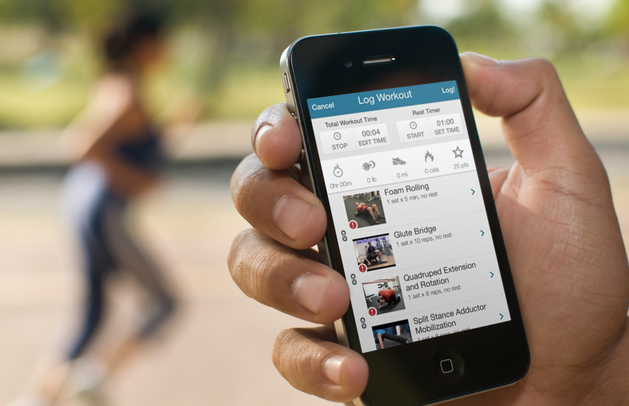
Want to create your own custom branded fitness apps? Get a demo now!
Fitness App Market Demand
The market demand for fitness apps has seen a significant uptick, particularly in the wake of global health concerns such as the COVID-19 pandemic. With many individuals seeking alternatives to traditional gym-based fitness regimens, the convenience, versatility, and personalization offered by fitness apps have made them an increasingly popular choice.
According to a report by Grand View Research, the global health and fitness app market size was valued at USD 3.15 billion in 2020 and is expected to grow at a compound annual growth rate (CAGR) of 21.1% from 2021 to 2028. This growth is attributed to increased health awareness, the convenience of virtual workouts, the influence of social media and fitness influencers, and the rise of wearable technologies that integrate with fitness apps.
Exercise.com, as a platform that enables the creation of personalized fitness apps, is well-positioned in this market trend. It allows fitness professionals to create their own custom-branded fitness apps, offering a wide range of features such as workout plan creation, online training, fitness challenges, and e-commerce capabilities. Thus, fitness professionals can tap into the growing demand for fitness apps and provide personalized services that meet the evolving needs of fitness enthusiasts.
Exercise.com is a comprehensive platform with the best fitness software for influencers, the best personal training software, and the best gym management software so no matter what type of fitness business you have, it simplifies the process and amplifies your earning potential while also helping you run fitness challenges, create online workout groups, do fitness livestreaming, do in-person and online training, and more, all through your own custom-branded fitness apps. With its ability to create, market, and sell personalized workout plans to a vast audience—all from white label fitness apps that can have your own fitness business branding—Exercise.com can help transform your fitness passion into a lucrative online fitness business.
Want to create your own custom branded fitness apps? Get a demo now!
Read More:
- Custom Branded Fitness Apps
- Best Fitness Mobile App Creation Software
- Best Fitness Influencer Apps
- Best Apps for Personal Trainers
- Types of Fitness Apps
How to Create Your Own Fitness Apps
Let’s get right to some practical ways that you can create your own fitness apps. With the Exercise.com platform you have a number of options to run a comprehensive online fitness experience for your community, all custom branded with your own fitness branding. You can sell workout plans, run fitness challenges, offer access (paid) to an online workout group, you can sell online training sessions, sell a membership to your own custom branded fitness app, offer mobile workout logging in your own workout apps, and much more. And if you need to name your fitness app, then we’ve got you covered with our giant list of fitness app name ideas and gym app name ideas.
Here are some easy things you can do with the Exercise.com software platform.
Use the Exercise.com workout plan creator to create your workout plans.
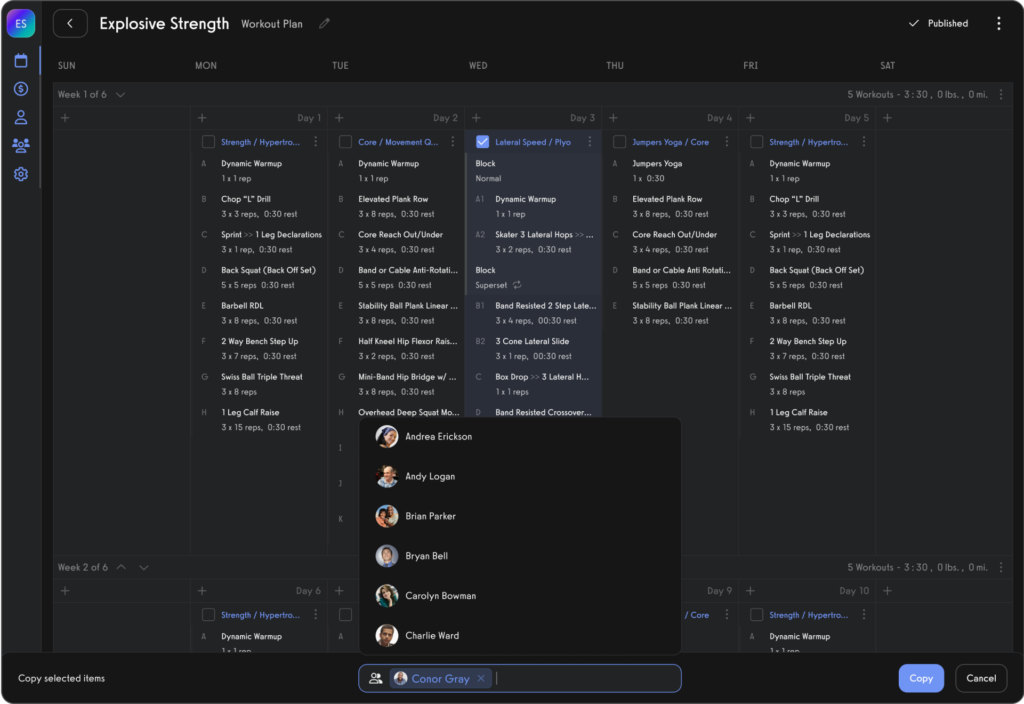
Then mark them for sale online so you can sell workout plans easily and quickly.
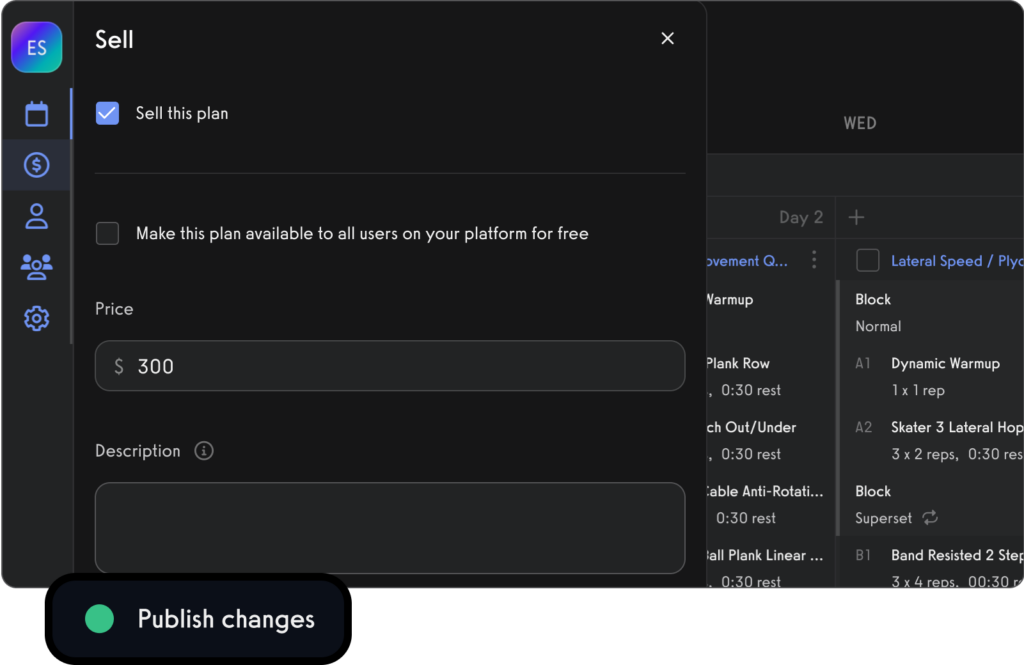
Publish your custom branded fitness apps so you can offer a premium workout logging experience to your community.
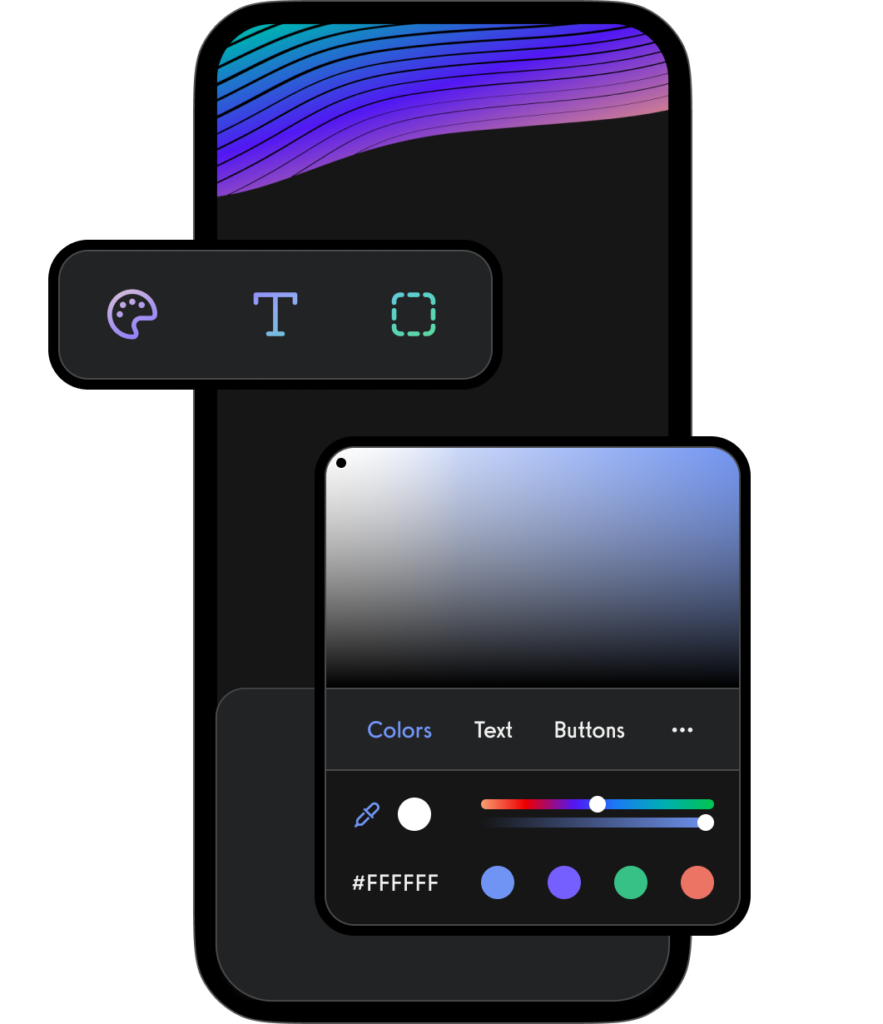
Your fitness followers will be able to search your name in the App Store and Google Play Store and then download your fitness app (no more instructing your followers to search for some other company’s name—start building your own fitness brand with your very own custom-branded fitness app!)
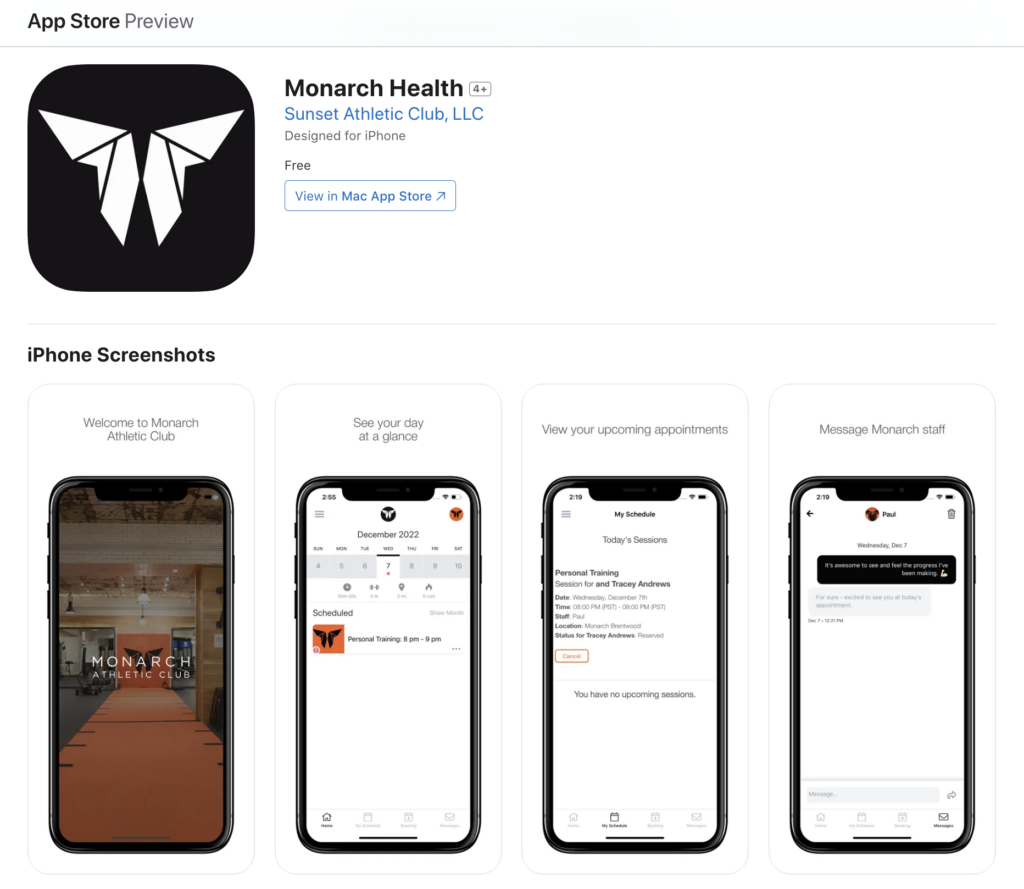
Your community can open up your fitness app and view their daily journal to log workouts, watch fitness videos, complete their daily habits, and more.
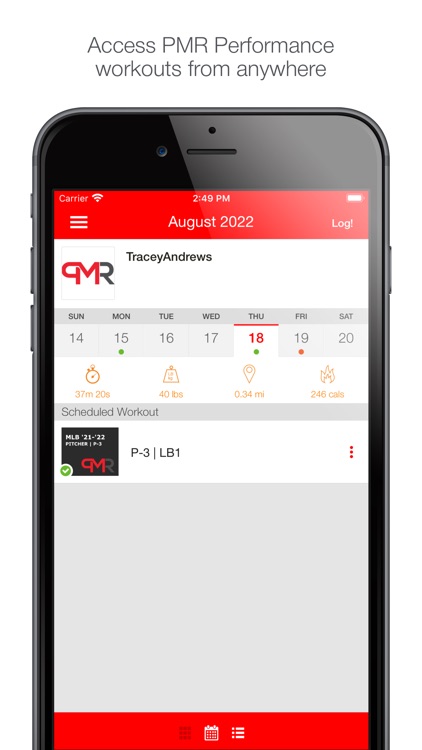
Create your own exercise demonstration videos or use the Exercise.com exercise video library to create a professional workout logging experience that your community will love and be happy to pay for (no more emailing around cobbled together PDF documents that people will just copy and share). Charge real money for a top notch fitness app that you will feel good about.
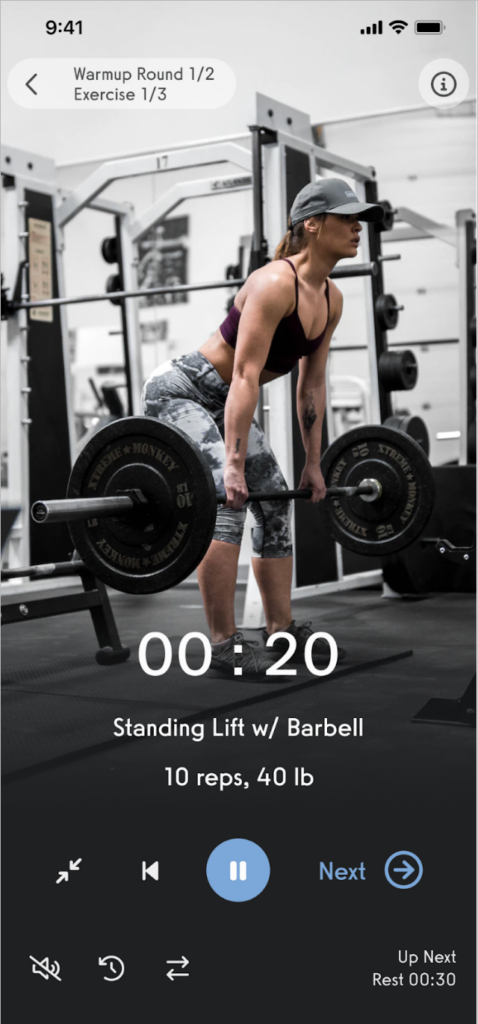
You can send messages to your community with email, SMS, and in-app messaging right inside of your own custom branded fitness apps, and you can even set up powerful fitness marketing automations to send messages automatically based on key triggers.
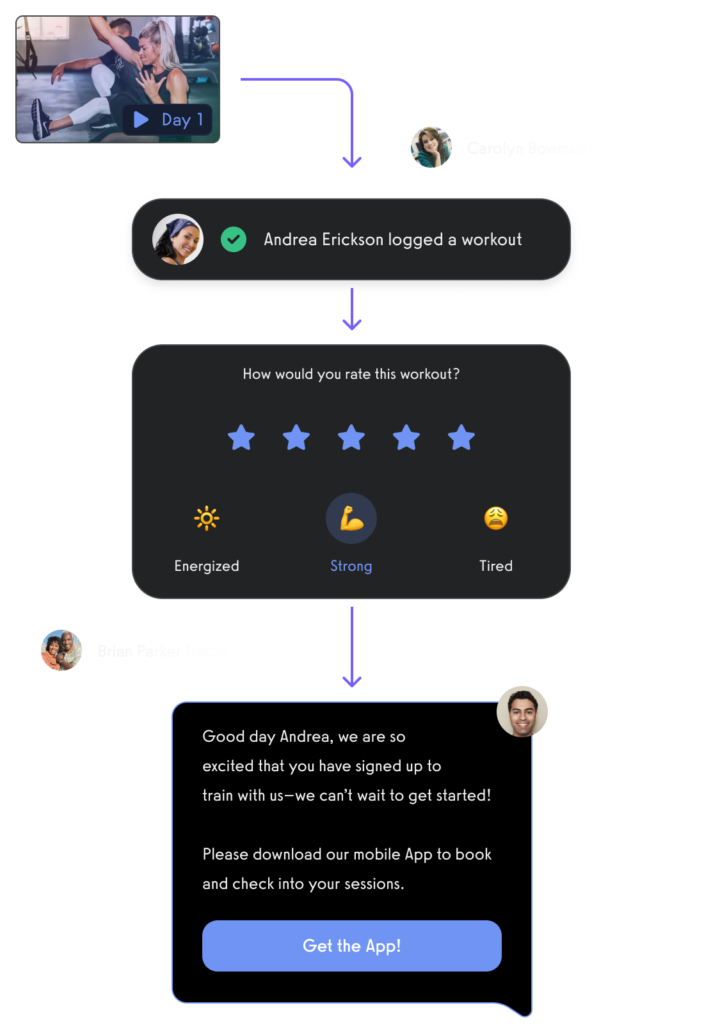
You can easily run your own virtual fitness challenges.
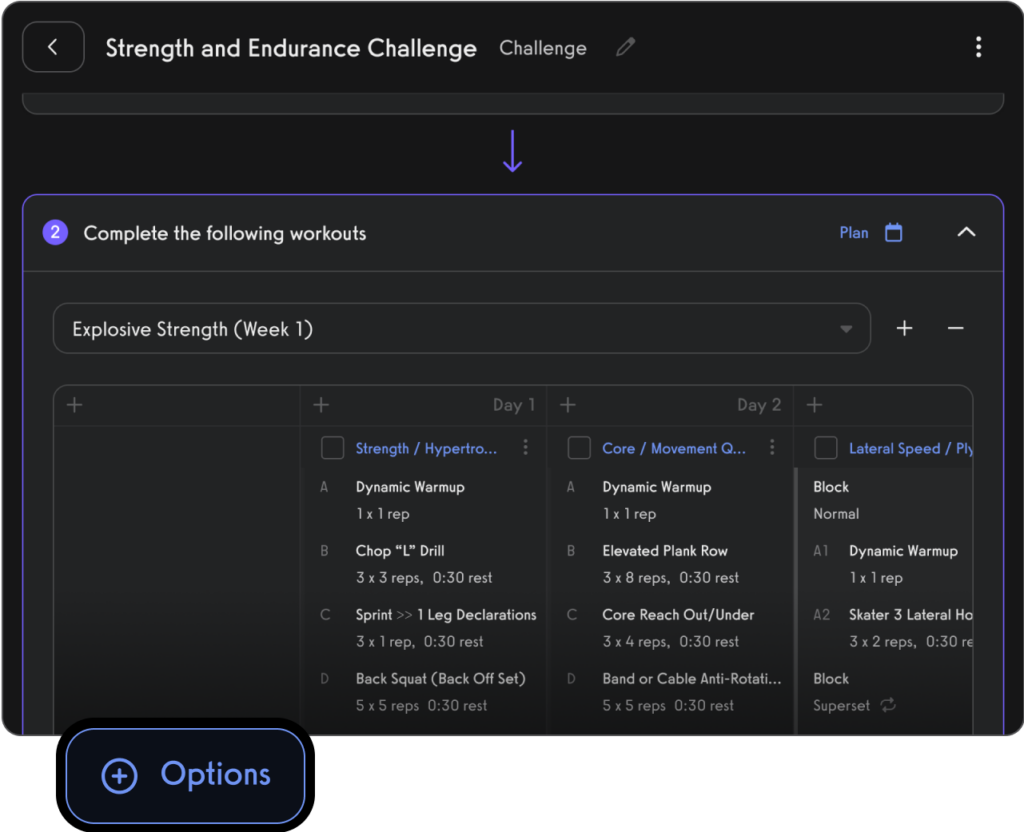
And create online workout groups, do distance training, sell workout plans online, time-release workouts in your apps, offer habit tracking, deliver nutrition guides, and much, much more, all right within your own fitness apps, and branded under your own fitness brand.
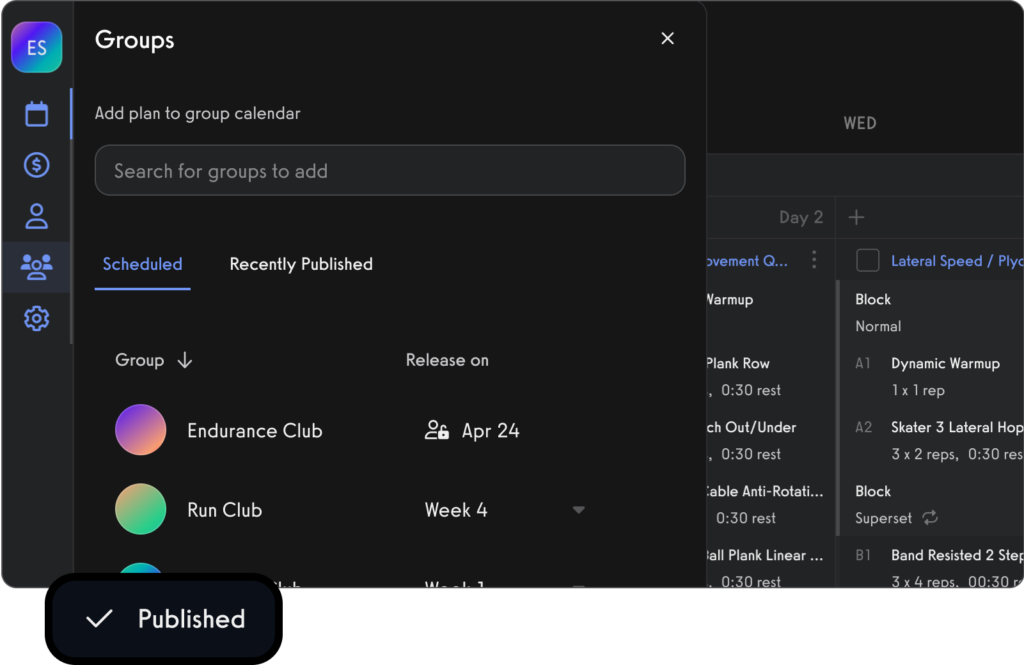

Exercise.com is the best fitness app builder software for fitness professionals who want a low cost and affordable custom branded fitness app. Exercise.com allows fitness professionals to have full control over their brand and learn how to make a fitness app quickly and easily, while ensuring a personalized and consistent experience for their clients.
Exercise.com is a comprehensive platform with the best fitness software for influencers, the best personal training software, and the best gym management software so no matter what type of fitness business you have, it simplifies the process and amplifies your earning potential while also helping you run fitness challenges, create online workout groups, do fitness livestreaming, do in-person and online training, and more, all through your own custom-branded fitness apps. With its ability to create, market, and sell personalized workout plans to a vast audience, Exercise.com can help transform your fitness passion into a lucrative online fitness business.
Ready to get started? Get a demo now!
Read More:
The rise of fitness apps in recent years
In recent years, fitness apps have become increasingly popular as more people strive to live healthier lifestyles. This rise in demand can be attributed to several factors, such as the increasing use of smartphones and the growing awareness about the benefits of regular exercise. In this article, we’ll explore the various reasons why fitness apps are in high demand, the target audience for these apps, the key players in the market, the impact of COVID-19 on app demand, and some potential drawbacks and concerns that users should be aware of.
The popularity of fitness apps has been on the rise for a few years now. With busy schedules and limited time to work out, people are turning to technology to help them stay on track with their fitness goals. According to a report by Statista, the global market for fitness apps is estimated to reach $14.7 billion by 2026. This shows that there is a high demand for these apps, with users willing to spend money on them to achieve their fitness goals.
Factors contributing to the popularity of fitness apps
There are many factors that have contributed to the rise of fitness apps. One of the main reasons is the increasing use of smartphones. Smartphones have become ubiquitous in our daily lives, and people use them for everything from communication to entertainment to productivity. As a result, people are more likely to use apps to track their fitness goals because it’s convenient and always accessible.
Another factor is the growing awareness about the benefits of regular exercise. Many people are now conscious of the impact of sedentary lifestyles on their health and well-being. As a result, they are more committed to staying active and using fitness trackers and apps to monitor their progress. Fitness apps allow users to log their workouts, track their progress, and set goals, which helps them stay accountable and motivated.
Moreover, the COVID-19 pandemic has also played a significant role in the popularity of fitness apps. With gyms and fitness centers closed, people have had to find alternative ways to exercise. Fitness apps have provided a convenient and safe way for people to stay active from the comfort of their own homes. They have also offered a sense of community and support through virtual challenges and social features.
Read More:
- Best Fitness App Builder Software
- How to Make a Fitness App
- How do I monetize my fitness app?
- Best Gym Mobile Apps Software
- How much does it cost to make a fitness app?
Key players in the fitness app market
There are several key players in the fitness app market, including MyFitnessPal, Fitbit, Nike Training Club, and Strava. Each of these apps offers unique features that cater to different fitness goals and user preferences. For example, MyFitnessPal is a calorie-tracking app that helps users monitor their food intake and achieve their weight-loss goals. In contrast, Nike Training Club is a workout app that offers personalized training plans based on the user’s fitness level and goals.
Fitbit is another popular fitness app that tracks daily activity, heart rate, and sleep patterns. It also offers coaching and guidance to help users reach their fitness goals. Strava, on the other hand, is a social fitness app that allows users to connect with other athletes, join challenges, and track their progress. These apps have revolutionized the way people approach fitness and have made it easier for users to stay motivated and achieve their goals.
Read More:
- Best Fitness App Development Companies
- Fitness App Statistics
- Best Personal Trainer App Builder Software
- Best Personal Trainer Client Tracking Apps
- Best Apps for Personal Trainers
Analyzing the target audience for fitness apps
Age demographics and fitness app usage
Fitness apps have become increasingly popular in recent years, with millions of people using them to stay active and healthy. These apps cater to a wide range of age groups, but the key target audience is millennials and Gen Z.
According to a survey by Statista, the highest percentage of fitness app users are between the ages of 18 and 24. This is likely due to the fact that younger generations are more tech-savvy and are always looking for ways to make their lives more efficient. They are also more likely to be active on social media platforms, where fitness influencers and bloggers often promote the latest fitness apps.
However, there is also a growing trend of older adults using fitness apps to stay active and healthy. A report by AARP found that 76% of adults aged 50 and older use a fitness app to track their health and fitness goals. This is likely due to the fact that older adults are more health-conscious and are increasingly aware of the benefits of staying active as they age.
Gender differences in fitness app preferences
While fitness apps cater to both men and women, there are some gender differences in their preferences. For example, women are more likely to use apps that focus on yoga and meditation, while men are more interested in strength training and bodybuilding apps. However, this is not a hard and fast rule, and many women also use strength-training apps, and vice versa.
One reason for this difference in preferences could be due to societal expectations of gender roles. Women are often encouraged to prioritize flexibility and mobility, while men are encouraged to focus on strength and muscle mass. However, it’s important to note that these expectations are changing, and more and more people are embracing a variety of fitness activities regardless of gender.
Another factor that could impact gender differences in fitness app preferences is the representation of different types of fitness in popular culture. For example, yoga has been marketed more towards women, while bodybuilding has traditionally been marketed more towards men. However, as the fitness industry becomes more inclusive and diverse, we are likely to see a wider range of fitness activities represented in fitness apps.
Features that make fitness apps appealing
Gamification and motivation in fitness apps
One of the features that make fitness apps appealing is gamification. Many fitness apps use game-like features such as achievement badges, leaderboard rankings, and challenges to motivate users and make the experience more fun. This helps users stay engaged and committed to their fitness goals.
For example, some fitness apps offer challenges that encourage users to compete against other users or their own personal best. These challenges can range from completing a certain number of workouts in a week to running a certain distance in a month. By participating in these challenges, users can feel a sense of accomplishment and motivation to continue their fitness journey.
Additionally, many fitness apps offer personalized coaching and motivation through virtual trainers or motivational messages. These virtual trainers can provide users with customized workout plans and feedback on their progress. The motivational messages can help users stay on track and push through tough workouts.
Personalization and customization options
Another feature that makes fitness apps appealing is personalization and customization options. Fitness apps offer a wide range of workouts and training programs that cater to different fitness goals and levels. Users can choose the type of workout they want, the intensity level, and the duration of the workout. This makes it easy for users to create a workout plan that works for their lifestyle and preferences.
Furthermore, some fitness apps offer personalized nutrition plans and tracking. Users can input their dietary preferences and restrictions, and the app will generate a meal plan that meets their needs. The app can also track their food intake and provide feedback on their nutrition goals.
Another customization option is the ability to sync with wearable fitness technology. Many fitness apps can connect with devices such as smartwatches and fitness trackers to track a user’s activity levels and provide more accurate feedback on their progress.
In conclusion, the gamification and motivation features, as well as the personalization and customization options, make fitness apps appealing to a wide range of users. Whether someone is just starting their fitness journey or is a seasoned athlete, there is a fitness app out there that can help them reach their goals.
The impact of COVID-19 on fitness app demand
Shifts in exercise habits during the pandemic
The COVID-19 pandemic has had a significant impact on the fitness industry. With gyms and fitness studios closed, many people have turned to home workouts and online fitness classes. This has led to a surge in demand for fitness apps, as people search for ways to stay active and healthy at home. According to a report by Apptopia, downloads of fitness apps increased by 47% in the first quarter of 2020 alone.
People are finding new and creative ways to stay active at home, with some turning to yoga and Pilates, while others are taking up running and cycling. With the help of fitness apps, people are able to track their progress and stay motivated, even when working out alone. The convenience of being able to work out at home has also led to more people incorporating fitness into their daily routines, which is a positive shift towards a healthier lifestyle.
The role of fitness apps in maintaining mental health
In addition to physical health, fitness apps are also important for maintaining mental health. The pandemic has resulted in increased stress and anxiety levels, and regular exercise has been shown to have a positive impact on mental health. Fitness apps offer a convenient and affordable way to stay active and de-stress, which is important for mental well-being.
Many fitness apps also offer guided meditation and mindfulness exercises, which can be helpful for managing stress and anxiety. These features are especially important during a time when many people are struggling with the mental health effects of social isolation and uncertainty about the future.
Overall, the increased demand for fitness apps during the pandemic highlights the importance of staying active and healthy, both physically and mentally. With the help of technology, people are able to access a wide range of fitness options and resources, making it easier to prioritize their health and well-being.
Potential drawbacks and concerns with fitness apps
Fitness apps have become increasingly popular in recent years, with many people using them to track their workouts, monitor their progress, and stay motivated. While these apps can be a useful tool for maintaining a healthy lifestyle, there are also potential drawbacks and concerns that users should be aware of.
Privacy and data security issues
One of the primary concerns with fitness apps is privacy and data security. Many apps collect personal information such as name, age, and location, along with fitness and health data. This information can be vulnerable to hacking or misuse, which can compromise users’ privacy and security.
It’s important for users to carefully read the privacy policies of any fitness app they use, and to be aware of what information is being collected and how it will be used. Users should also take steps to protect their personal information, such as using strong passwords and enabling two-factor authentication.
The risk of over-reliance on technology for fitness
Another potential drawback is the risk of over-reliance on technology. While fitness apps can provide motivation and accountability, some users may become too dependent on the app and lose sight of the joy of exercise. It’s important to use fitness apps as a tool to support a healthy lifestyle, rather than relying on them as the sole source of motivation and exercise.
One way to avoid over-reliance on technology is to mix up your workouts and try new activities. This can help keep exercise fun and interesting, and prevent boredom or burnout. It’s also important to listen to your body and pay attention to how you feel during and after workouts, rather than relying solely on the data provided by the app.
Potential inaccuracies in tracking
Another concern with fitness apps is the potential for inaccuracies in tracking. While many apps use advanced algorithms and sensors to track workouts, there can still be errors or discrepancies in the data. For example, a GPS tracker may not accurately measure the distance of a run if the user goes off course or encounters poor signal strength.
To minimize inaccuracies, it’s important to calibrate your app and sensors regularly, and to double-check the data to ensure it aligns with your own experience of the workout. It’s also important to remember that fitness apps are just one tool for tracking progress, and that other factors such as nutrition, sleep, and stress levels can also impact overall health and fitness.
The potential for app addiction
Finally, another potential concern with fitness apps is the risk of app addiction. While it may seem harmless to spend a few extra minutes checking your progress or scrolling through workout tips, excessive use of fitness apps can lead to a compulsive behavior that interferes with other aspects of your life.
To avoid app addiction, it’s important to set boundaries and limit your use of fitness apps to specific times of day or specific purposes. It’s also helpful to engage in other activities that promote overall well-being, such as spending time with family and friends, pursuing hobbies, or practicing mindfulness or meditation.
Fitness apps are in high demand due to the growing awareness about the benefits of regular exercise, the increasing use of smartphones, and the convenience they offer. The target audience for these apps is diverse, with a growing trend of older adults using fitness apps as well.
Personalization, gamification, and motivation are some of the features that make these apps appealing to users. However, users should also be aware of potential drawbacks and concerns with privacy and data security, as well as the risk of over-reliance on technology. Overall, fitness apps can be a useful tool for staying active and healthy, but it’s important to use them in moderation and as part of a well-rounded fitness routine.
Are fitness apps becoming more popular?
Yes, fitness apps have become increasingly popular in recent years. This trend has been accelerated by lifestyle changes due to the COVID-19 pandemic, which has driven a surge in demand for digital fitness solutions.
How is technology changing the fitness industry?
Technology is revolutionizing the fitness industry in various ways. It has enabled the rise of virtual workouts, online personal training, and digital fitness communities. Wearable technology and fitness trackers are also enhancing personal fitness by allowing users to track their progress and set personalized goals. Advanced data analytics and AI are enabling highly personalized fitness recommendations and experiences.
What percentage of people use fitness apps?
The usage of fitness apps varies by region, age group, and other factors. However, according to a 2020 report by Statista, around 875.4 million people worldwide used mobile fitness apps.
Which age group uses fitness apps the most?
Generally, younger age groups, particularly those between 18 to 34 years old, are the most frequent users of fitness apps. However, fitness apps are increasingly being used by all age groups, including older adults, as they offer customizable and flexible workout options.
What makes a fitness app successful?
A successful fitness app typically offers a combination of useful features such as personalized workout plans, progress tracking, interactive elements (like challenges or social sharing), and a user-friendly interface. Additionally, successful fitness apps often have a clear target audience and a strong brand.
How profitable are fitness apps?
Profitability can vary widely among fitness apps depending on factors like user base, pricing strategy, and operational costs. However, with the rise in demand for digital fitness solutions, many fitness apps have found success through subscription models, in-app purchases, and partnerships with other fitness brands.
Read More: How profitable are fitness apps?
How much does it cost to launch a fitness app?
The cost to launch a fitness app can range widely depending on whether you are building it from scratch, hiring a development team, or using a platform like Exercise.com. Building an app from scratch or hiring developers can cost anywhere from several thousand dollars to hundreds of thousands of dollars. However, with Exercise.com, you can get a custom-branded fitness app at a fraction of the cost.
Why should I use Exercise.com to create a fitness app?
Exercise.com simplifies the process of creating a fitness app by providing a platform with pre-built features tailored for fitness businesses. This includes workout creation and tracking, ecommerce capabilities, scheduling, and a custom-branded app. Using Exercise.com saves time, reduces cost, and ensures that your fitness app is equipped with all the essential features needed for success in the digital fitness landscape.
Create Your Own Fitness App

See why Exercise.com is the best choice for fitness influencers, personal trainers, gym owners, and fitness professionals who want to create fitness apps and grow their fitness business online and in-person. Are you ready to create your own custom-branded fitness apps?
Read More:









